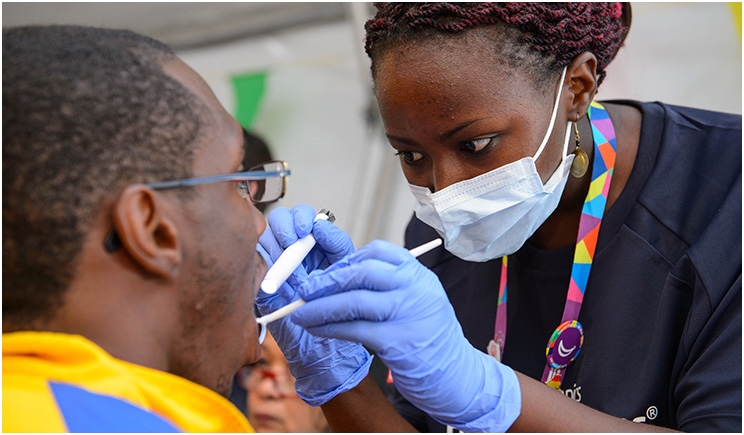
As a pediatrician in Los Angeles for almost 20 years, I would see a lot of patients with intellectual and developmental disabilities (IDD). Some had gone their whole lives undiagnosed with a preventable or treatable condition—especially oral health conditions.
One case is typical. A 13-year-old girl with intellectual disability came in due to a fall. I discovered during my initial exam that this teenager had not been to the dentist in nine years due to the inability to find one willing to treat her, and she had gone her whole life without effective and quality healthcare.
Unfortunately, this happens every day in the United States to children and adults with IDD. I have seen teens with all of their teeth pulled. I have seen such severe gingival hyperplasia that multiple gingivectomy procedures are needed. I have seen abscesses that have resulted in facial mutilation and worse, including death.
It is unfathomable to me that for the 20 years since I started practicing, this entire population has been ignored and has not received the same level of care as those without IDD. Now more than ever, in the midst of the COVID-19 pandemic, people with IDD are at risk of being left out of adequate healthcare.
In July 2015, I attended the Special Olympics World Summer Games in Los Angeles and visited the Special Olympics Healthy Athletes program associated with the Games. Thousands of athletes with IDD were getting health screenings for dental care, sports physicals, vision, hearing, and more. Inspired, I volunteered and most recently joined Special Olympics in 2019 as its first chief health officer.
Now, in the midst of this pandemic, my sense of purpose is even more clear. We must advocate for healthcare on behalf of our most vulnerable populations, including those with IDD.
Dental Care for People with IDD
On a team of 10 Special Olympics athletes, three have untreated tooth decay, and one will need an urgent referral to a dentist.
Special Smiles is one of the most compelling elements of our Special Olympics Healthy Athletes program. In Special Smiles, athletes receive free dental screenings from volunteer dental professionals at Special Olympic events.
Annually, Special Smiles reaches 200 Special Olympics events across 100 countries. From 2015 to 2018, it conducted 72,288 dental screenings on people with IDD. In a global study of more than 5,400 athletes screened at least twice, at their later screening, 67% no longer had oral pain.
These Special Smiles screenings are the first time that many athletes ever see a dentist. By that time, many already are suffering from dire oral health. Many have severe complications that could have been prevented with the right access to dental care and, in some cases, an understanding of their physical limitations and sensitivities. Many patients with IDD may not have the knowledge or dexterity to effectively address their oral health needs, while some may be unable to communicate about their pain.
There are so many preventable health conditions that people with IDD face, including severe dental complications, that could be prevented by establishing more quality access to healthcare systems and training for healthcare providers to understand how to treat people with IDD.
Only recently, because of Special Olympics’ efforts, do all accredited dental schools have a credo stating that all dentists must be competent in treating patients with IDD and must receive hands-on training to achieve a level of competence. This is a huge step in the right direction.
Joining Special Olympics has shown me that with the right knowledge, skills, and attitude, you can make a difference for those with inequitable access to quality care. Our greatest remaining challenges are generating awareness and action—awareness that this population and disparities exist, and action to learn how to care for patients with IDD and to make systemic inclusive health changes.
Join me in helping advocate for more healthcare inclusion by visiting specialolympics.org/tag/special-smiles.
Dr. Bazzano completed medical school and her pediatric residency at the University of California Los Angeles (UCLA) and was a Clinical Scholar, selected by the Robert Wood Johnson Foundation. She serves on the faculty of UCLA, where she completed her master of public health degree and her doctorate in health policy and management. She has dedicated her career to helping those with intellectual and developmental disabilities receive quality healthcare and currently serves as the chief health officer of Special Olympics.
Related Articles
Autism: A Humanistic Approach to Dentistry
Clinic Specializes in Dentistry for Patients With Special Needs
Program Introduces Children With Autism to the Dental Office











